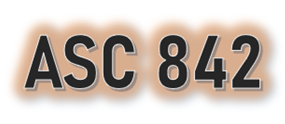Whenever you modify an item, it tends to have an effect on its value. This applies to everything from vehicles and homes to appliances and equipment that lose their warranty when they are customized. Commercial real estate (and leases in particular) follow this same pattern.

Especially as it is related to ASC 842, lease modifications can have a significant influence on the valuation of commercial real estate properties. Let’s take a look at the factors to consider when assessing the effect of lease amendments on property value, as well as common challenges involved and how CRE software might help.
ASC 842 and Lease Modifications?
The Accounting Standards Codification (ASC) 842, implemented by the Financial Accounting Standards Board (FASB), has brought significant changes to the way lease transactions are accounted for and reported. The new guidelines have particularly impacted CRE valuations, introducing complexities and considerations that need to be thoroughly assessed.

Under ASC 842, leases are classified as either finance leases or operating leases, each with specific reporting requirements. Lease modifications occur when changes are made to the terms and conditions of an existing lease agreement, including alterations to lease payments, lease terms or the addition/removal of leased assets.
Key Factors Influencing CRE Valuations
Again, modifications can have a significant impact on the valuation of CRE properties, as they can affect the lease’s present value and financial statement disclosures. Specifically, the following factors can influence these CRE valuations:
- Lease term and discount rate adjustments: Lease modifications often result in changes to the lease term, potentially impacting the property’s valuation. Shortened lease terms may decrease the property’s value, while longer lease terms can increase it. Additionally, modifications may require adjustments to the discount rate used to calculate the lease’s present value, influencing the property’s overall worth.
- Lease payment modifications: Changes in lease payments—such as rent escalations, rent holidays or the inclusion of additional expenses—can affect the property’s valuation. Adjustments to lease payments alter the cash flow stream, potentially impacting the property’s net operating income (NOI) and, subsequently, its value.
- Leasehold Improvements and Asset Additions: Lease modifications may involve alterations to leasehold improvements or the addition of new assets to the lease agreement. These changes can influence the property’s valuation by either increasing its value through added functionality and attractiveness or by introducing additional maintenance and depreciation costs.
Challenges in Assessing CRE Valuations
While there can be positive effects of ASC 842 lease modifications on CRE valuations, there are definitely challenges involved with valuing CRE properties in the first place. A few examples of these include:
- Complex lease structures: CRE lease agreements can be intricate, involving various components, such as base rent, operating expenses, common area maintenance fees and tenant improvement allowances. Modifications to these complex structures require careful analysis to accurately determine their impact on the property’s value.
- Data management and analysis: ASC 842 necessitates the collection and organization of extensive lease data to accurately assess CRE valuations. The proper management and analysis of this data can be challenging, especially for organizations with large lease portfolios. Utilizing lease administration software like Quarem or partnering with specialized service providers can streamline this process.
- Expert knowledge and compliance: Understanding the intricacies of ASC 842 and its implications on CRE valuations requires expertise in both accounting and commercial real estate. Organizations should ensure they have professionals with a strong understanding of lease accounting standards and valuation methodologies to accurately assess the impact of lease modifications.
Professionals in the CRE industry must carefully evaluate the impact of lease modifications on valuation factors such as lease term, lease payments and assets included in the lease agreement. To see how Quarem helps you do all of this and more, request a demo today.

